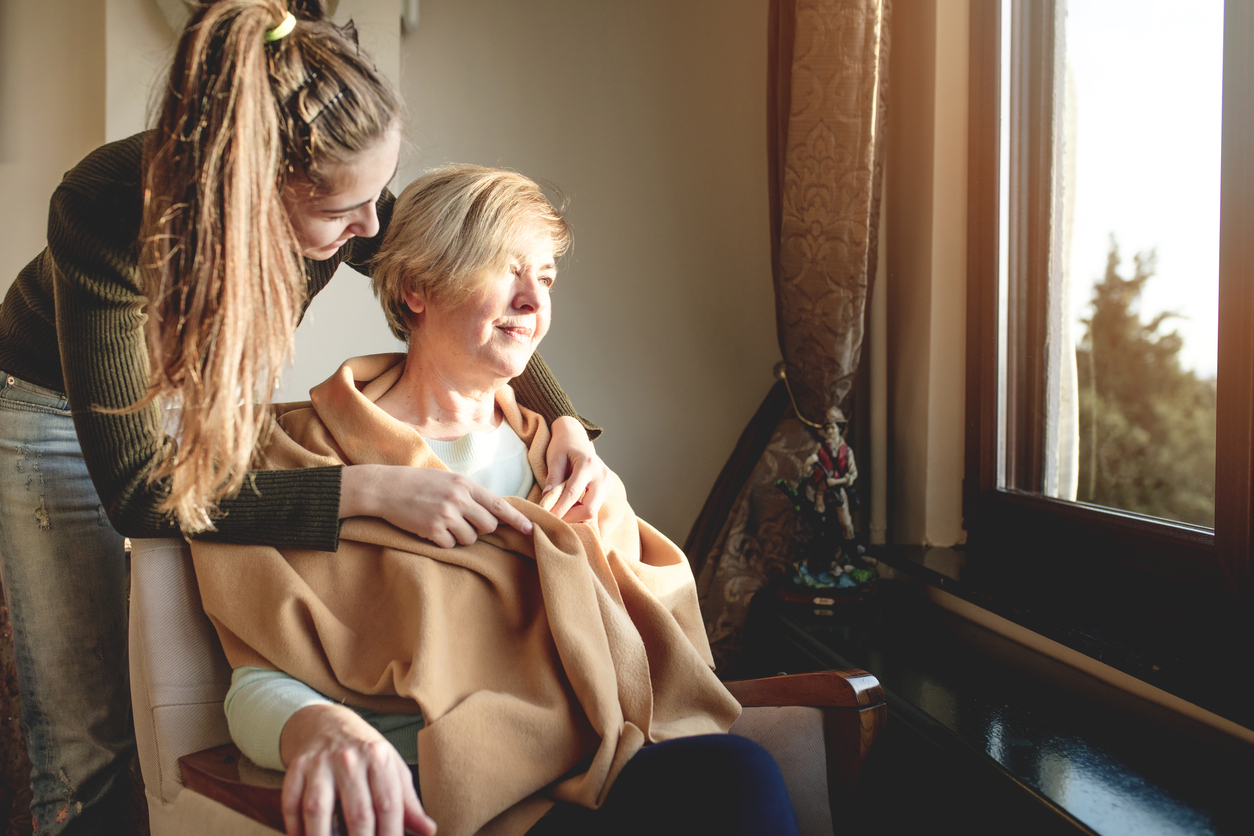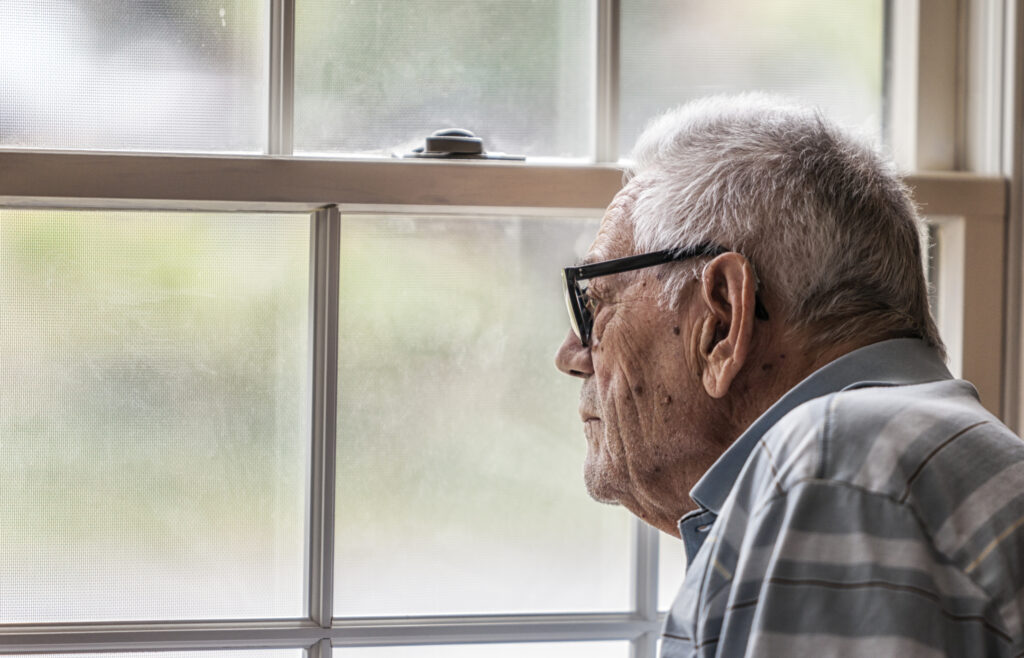
The Alzheimer’s Association estimates that nearly 50 million people are living with Alzheimer’s disease or other dementias worldwide and nearly 12 million Americans provide unpaid care for their loved one living with the disease.
Caring for your loved one with end-stage dementia is challenging. Hospice can help you
by providing specialized care that offers comfort, support, and dignity at the end of life. This type of care addresses physical, emotional, social, and spiritual needs while assisting you, the caregiver, with hands-on care. Hospice care for dementia uses a team approach to maintaining quality of life for your loved one while reducing caregiver burden.
For patients and families seeking hospice care for dementia in Southern NJ, Samaritan has been the premier hospice provider since 1980. With expertise caring for many patients with end-stage dementia each year, Samaritan ensures compassionate, comprehensive support tailored to the unique needs of your loved one and family. Call us at (856) 596-1600 to speak to a hospice and dementia expert in Southern NJ 24/7.
Call now for more information or for an assessment
Available 24/7 (856) 596-1600

Benefits of Hospice Care for Dementia Patients
Choosing hospice care for dementia during its final stages helps preserve quality of life and dignity for your loved one as their needs intensify, it also empowers dementia patients with the ability to make decisions. Encouraging your loved one to discuss care options while they are still able to express their wishes allows them to have a voice in their care planning.
They can choose to remain in the comfort of their own home to receive as much emotional and spiritual support as possible.
Hospice also equips dementia patients and their families with an extra layer of support through a team of caring professionals including:
Nurses and certified home health aides visit regularly and tend to the physical needs of dementia patients. Certified home health aides bathe patients and change bed linens while nurses address any dementia symptoms they may be experiencing. Families also have peace of mind with 24/7 phone access to dementia and hospice experts when you have a question or need additional help.
A social worker aids with emotional needs, understanding care options, completing advance directives, and connecting you with community resources. A spiritual support counselor explores your spiritual concerns, makes sense out of life’s changes, reconciles feelings of guilt or regret, discover sources of hope, and more.
A volunteer offers companionship and provides you, the caregiver, a much-needed break. Caring for a loved one with dementia is overwhelming and when a volunteer visits you can take a nap or run an errand.

When is your loved one with dementia eligible for hospice care? Similar to the general hospice eligibility criteria, dementia patients are eligible for hospice when their physician certifies that they are terminally ill – or has six months or less to live. However, don’t wait for your physician to bring up hospice care for dementia. By being your loved one’s healthcare advocate, and inquiring about hospice care sooner rather than later, you and your loved one will experience the many benefits of this extra layer of support.
For families researching hospice and dementia in Southern NJ, let us determine if your loved one with dementia is eligible for hospice care by calling us 24/7 at (856) 596-1600.
Yes, Medicare covers hospice care for patients with dementia. Medicare provides comprehensive hospice care services including medical care, pain management, emotional support, and assistance for caregivers, ensuring comfort and dignity for patients during their end-of-life journey. Learn more about Medicare and hospice or explore other methods of paying for hospice care.
Discussing hospice care with your loved one with dementia can be challenging, but it’s essential to ensure they receive the best possible care. It’s important to choose the right time and place, be clear and gentle, focus on comfort and support, and acknowledge their feelings. Emphasize that hospice care is about providing comfort, managing symptoms, and improving quality of life. Highlight the support available for both the patient and the family.
You may want to involve the healthcare team to provide professional insights and answer questions. Encouraging your loved one to discuss advance care planning while they are still able to express their care wishes allows them to have a voice in the care they’ll receive throughout their dementia journey.
You should explain the benefits of hospice care and discuss the different services and support available. Encourage questions and provide honest answers to help them understand the situation better. Take your time and remember that empathy and clarity can help dementia patients and their families make informed decisions about hospice care.

For those seeking hospice care for dementia in South Jersey, Samaritan has been a trusted provider for over 45 years. Samaritan’s Dementia Care Program is part of Medicare GUIDE, focused on improving the quality of life for people living with Dementia and their caregivers. We provide hospice care wherever you call home, whether that’s a house or medical facility. With two inpatient facilities in Voorhees and Mount Holly, we’re equipped to care for dementia patients who are experiencing severe symptoms from end-stage dementia such as pain, shortness of breath, nausea, agitation, and more.
Please call us at (856) 596-1600 to talk to a dementia and hospice expert 24/7 or complete this patient referral form to learn more about how we can help your family.

Learn More About Hospice and Dementia Care in South NJ
Contact us today
(856) 596-1600